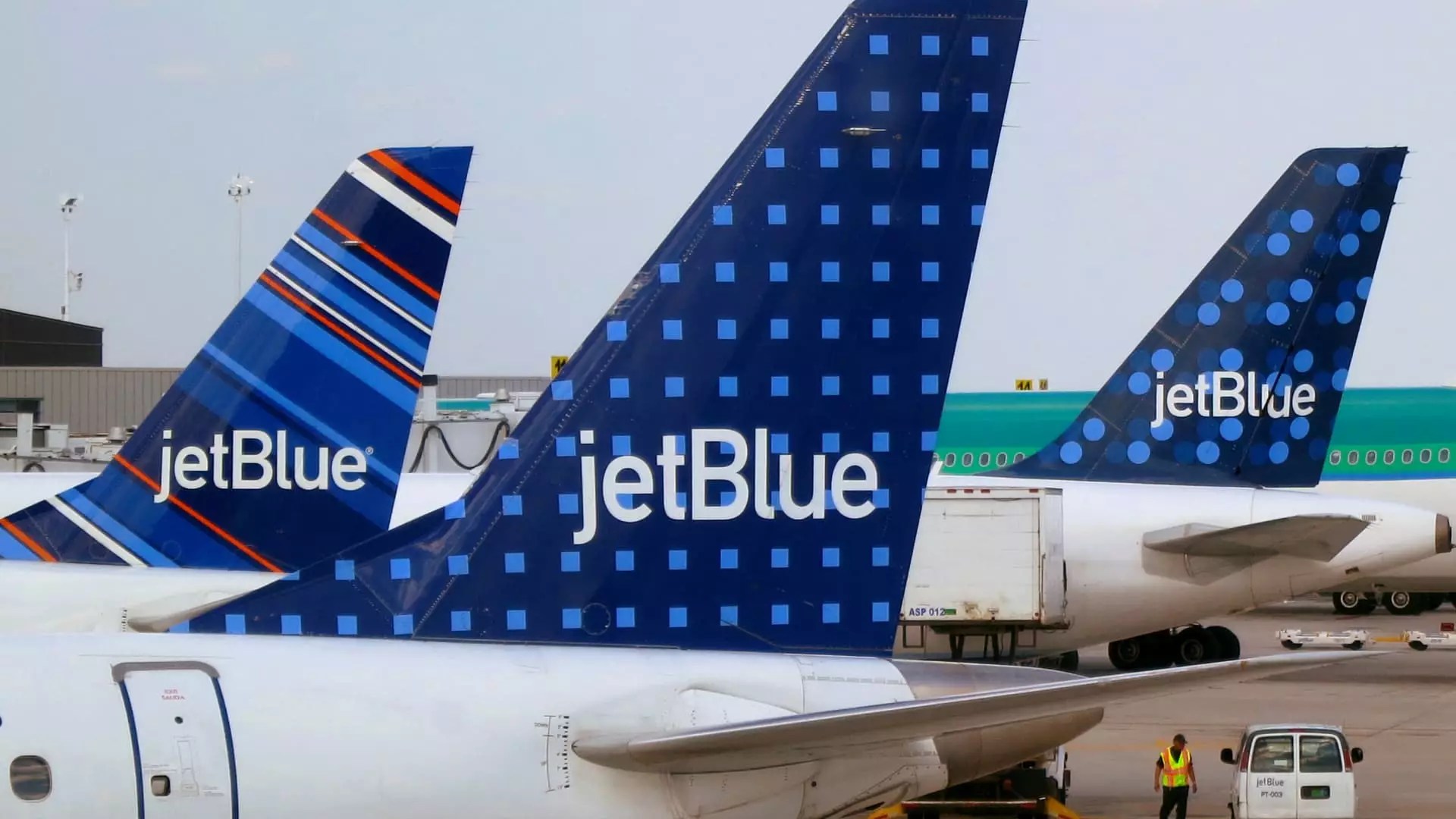In a groundbreaking decision that may reshape the aviation landscape, the Department of Transportation (DOT) has imposed a hefty $2 million fine on JetBlue Airways due to what it termed “chronically delayed flights.” This unprecedented move indicates that authorities are prepared to hold airlines accountable for operational shortcomings that adversely affect passengers. The looming question becomes: how will this affect consumer trust in air travel and the broader airline industry?
The DOT’s actions derive from a troubling performance record, with JetBlue’s operations suffering significant delays across four specific routes from June 2022 to November 2023. These routes included flights from JetBlue’s primary hub at John F. Kennedy International Airport to destinations like Raleigh-Durham International and options connecting Fort Lauderdale with Orlando and Windsor Locks, Connecticut. The sheer volume of delays — with over 145 reported instances — raises alarm over JetBlue’s scheduling practices and operational execution.
JetBlue’s identification as a “chronically delayed” operator underscores a rigorous definition provided by the DOT. The agency categorizes a flight as chronically delayed if it arrives over 30 minutes late more than half the time, given that it operates at least 10 times a month. Shockingly, the data indicated that JetBlue was accountable for over 70% of disruptions on the aforementioned routes. This points to a concerning trend of unrealistic scheduling that fails to align with operational realities.
Transportation Secretary Pete Buttigieg remarked that the DOT’s actions serve notice to the entire airline industry to recalibrate their flight schedules in order to provide accurate expectations for air travelers. The onus is not only on JetBlue but extends to the broader aviation sector to enact significant reforms that foster reliability in travel schedules.
In response to the fine and the critical findings from the DOT, JetBlue has issued a statement advocating for a broader conversation surrounding the interconnected responsibilities of airlines and the government in ensuring efficient air travel. Notably, JetBlue highlighted the urgent need for improvements to the U.S. air traffic control system, underscoring mutual accountability between airlines and governmental agencies.
JetBlue’s frustrations echo sentiments previously voiced by executives from major airline players, including Delta and United Airlines. They argue that chronic air traffic controller staffing shortages and the pressing need for modernization of outdated technologies play a substantive role in the delays faced by travelers. By attributing part of the challenge to government inefficiencies, JetBlue seeks to deflect some responsibility, sparking a larger dialogue around systemic issues plaguing the aviation sector.
The ramifications of this fine go beyond JetBlue; they could signal a paradigm shift in the relationship between consumers and air carriers. As airlines navigate the implications of the DOT’s scrutiny, passengers may begin to demand greater transparency and accountability regarding flight schedules. The sector may experience heightened pressure to structure operational procedures that place greater emphasis on punctuality and customer experience.
Furthermore, the DOT’s investigation into other airlines for unrealistic flight schedules may lead to an industry-wide reassessment of operational strategies. This development could usher in intensified regulations and increased oversight. As consumer expectations burgeon in an age characterized by immediate gratification, airlines will face an uphill battle in retaining customer trust amidst mounting scrutiny.
JetBlue’s $2 million penalty illuminates a critical juncture for the airline industry, showcasing an evolving landscape wherein accountability and customer service take center stage. It compels airlines to introspect about their operational practices while simultaneously advocating for a collaborative approach with governmental entities to address systemic inefficiencies.
Ultimately, JetBlue’s predicament serves as a cautionary tale for all airlines. The pressure to deliver reliable service is escalating, and as travelers become more discerning, the industry’s survival hinges on adapting to these expectations. This newfound resolve may pave the way for a more reliable, efficient air travel experience, drawing the industry closer to the standards that passengers rightfully demand.


Leave a Reply